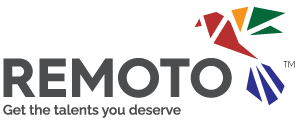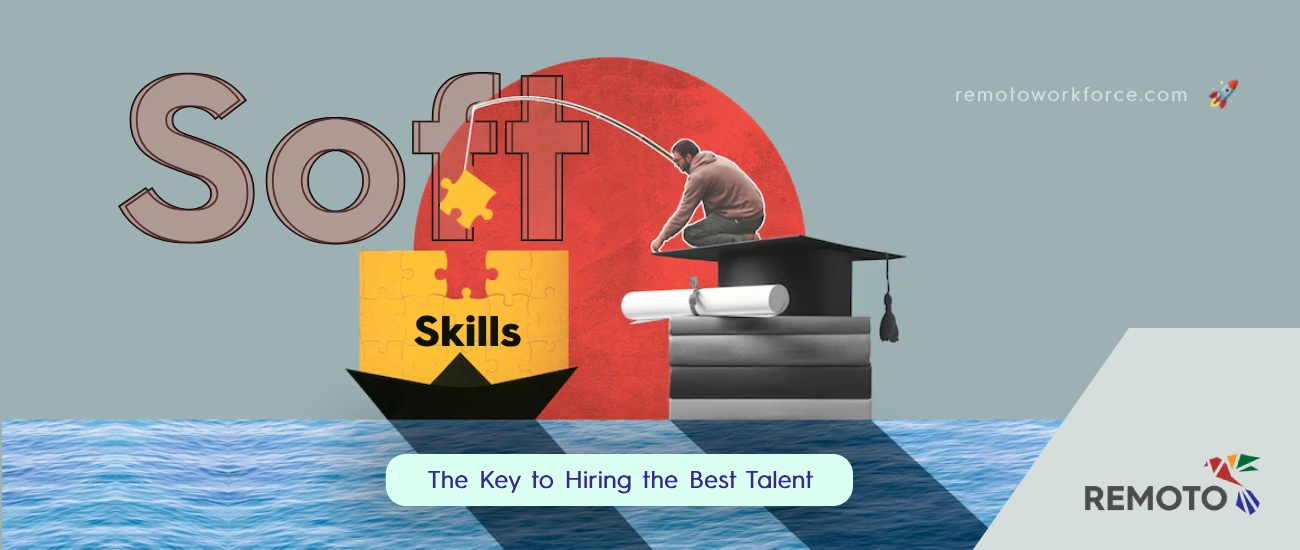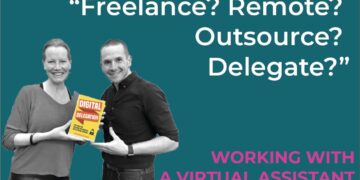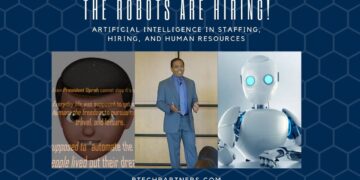Hiring managers and recruiters often focus on technical expertise to evaluate candidates in the job market. But here’s the thing: Hard skills get the job done, while soft skills make people thrive. In fact, today, soft skills are the ultimate differentiator between good and great talent.
Soft skills encompass attributes like adaptability, communication, problem-solving, and emotional intelligence. These traits aren’t just “nice to have” but essential for collaboration, leadership, and navigating challenges. For businesses to succeed, they need people who can work effectively with others and adapt to rapidly changing environments.
As industries change, so do the requirements for success. Gen Z and millennials, in particular, place a high value on work environments that prioritize emotional intelligence, collaboration, and growth opportunities. By focusing on these skills during recruitment, companies set the stage for long-term success.
In this blog post, we analyze how soft skills are the key to hiring the best talent for your company.
Bridging the Gap: What Soft Skills Bring to the Table
Soft skills hold teams together. Even the best employees can slow down progress if they can’t talk well or deal with unexpected situations. Soft skills enable employees to connect meaningfully with colleagues, clients, and stakeholders.
Take communication, for example. Clear, concise, and empathetic communication ensures teams stay aligned, reduces misunderstandings, and fosters a culture of transparency. Employees who can articulate ideas and listen actively help companies achieve their goals faster.
Another standout is emotional intelligence. In stressful situations, employees who are emotionally smart are good at managing stress, resolving conflicts, and helping others. This creates a ripple effect, improving workplace morale and productivity. Simply put, soft skills are the foundation for a resilient, cohesive workforce.
How to Identify Top Talent Through Soft Skills
Hiring for soft skills requires a shift in approach. Traditional interviews often focus on assessing technical competencies, leaving little room to uncover interpersonal strengths. However, with the right strategies, you can identify candidates who bring the perfect mix of technical expertise and emotional intelligence to your team.
Start by rethinking your interview questions. Open-ended prompts like “Tell me about a time you resolved a conflict at work” or “How do you handle constructive feedback?” reveal a candidate’s ability to communicate, adapt, and think critically. Behavioral questions are powerful tools for evaluating the application of soft skills.
Group interviews or situational exercises are another great way to evaluate teamwork, problem-solving, and adaptability. Seeing candidates in action provides insights that a resume simply can’t capture. Pair these methods with references from previous managers or colleagues to gain a well-rounded view of their interpersonal abilities.
The ROI of Hiring for Soft Skills
Investing in soft skills pays off in more ways than one. Employees with strong interpersonal abilities contribute to a healthier workplace culture, leading to higher retention rates. And we all know retention isn’t just about saving money. It’s related to maintaining knowledge, fostering trust, and building strong teams.
Teams that excel in soft skills also tend to perform better under pressure. When challenges arise, these employees approach problems with creativity and resilience, inspiring those around them to do the same. It’s this adaptability that keeps businesses competitive in unpredictable markets.
Moreover, leaders with exceptional soft skills have a unique ability to motivate, mentor, and develop their teams. This creates a domino effect of growth, ensuring your organization is always prepared to tackle new opportunities and challenges.
Building a Soft Skills-Centric Hiring Strategy
To fully integrate soft skills into your recruitment process, start by redefining the qualities you’re looking for in candidates. Technical expertise should complement—not overshadow—the interpersonal abilities required for the role. Outline these expectations clearly in job descriptions to attract the right talent.
Next, training for hiring managers and interviewers should be provided. Equip them with tools and techniques to assess soft skills effectively, from structured interviews to role-playing scenarios. Continuous improvement in these areas ensures your organization stays ahead in identifying top talent.
Finally, create a culture that values and nurtures soft skills. Offer professional development programs, mentorship opportunities, and regular feedback to help employees grow. When soft skills are prioritized at every level, they become a core part of your company’s DNA.
Why Focusing on Soft Skills is the Future of Recruitment
In a world driven by automation, AI, and rapid technological advancements, soft skills are what make us human and irreplaceable. They’re the key to navigating complexities, driving innovation, and fostering meaningful connections in the workplace.
As younger generations enter the workforce, they bring fresh perspectives on collaboration, empathy, and adaptability. By embracing these values, organizations position themselves not just as employers of choice but as leaders in their industries.
When you prioritize soft skills, you’re not just hiring employees; you’re building a resilient, future-ready workforce that thrives in any environment. And that’s the ultimate competitive advantage.














